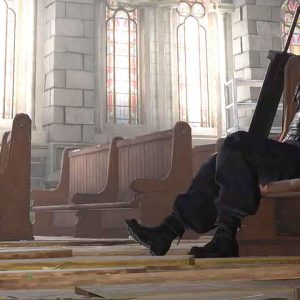Lucasfilm has had what can, charitably, be described as a rocky history with how it has handled Star Wars frequently finding itself the target of the ever-evolving reactionary culture war. In fits and starts, the studio has struggled in defending stars and crew from harassment and baseless accusations, from the faux-outrage of John Boyega being cast as a Black Stormtrooper in The Force Awakens, all the way to its upcoming Rey film. But things have improved, to a point—and with its latest show, The Acolyte, the company is at least willing to acknowledge that it’s ready to defend its work from bad-faith bigotry.
“My belief is that storytelling does need to be representative of all people,” Lucasfilm head Kathleen Kennedy recently told the New York Times, discussing a pushback by certain corners of the internet against the upcoming Disney+ series, decrying the show for prominently featuring characters of color and women in its cast. “That’s an easy decision for me.”
“Operating within these giant franchises now, with social media and the level of expectation—it’s terrifying,” Kennedy added. “I think Leslye [Headland, The Acolyte’s showrunner] has struggled a little bit with it. I think a lot of the women who step into Star Wars struggle with this a bit more. Because of the fan base being so male dominated, they sometimes get attacked in ways that can be quite personal.”
As simple a statement as it is from the producer, it’s at least an acknowledgement that Kennedy and Lucasfilm have been reticent to make in a full-throated manner over the past few years as Star Wars project after Star Wars project has had to endure attempts by right-wing grifters to center their work as part of the cultural conflict that has dominated political discourse increasingly over the last decade. Before they rallied around wrestler and actress Gina Carano after Lucasfilm dropped her from The Mandalorian in the wake of multiple social media comments about pronoun usage, vaccination, and the storming of the U.S. Capitol on January 6, 2021, the same commenters bristled at Carano’s character, a former Rebel heavy trooper named Cara Dune, for appearing in The Mandalorian as a battle-hardened female soldier capable of going toe-to-toe with the series’ protagonist in combat.
Vociferous abuse and harassment of Kelly Marie Tran for her portrayal of Rose Tico in The Last Jedi—even beyond what that movie ultimately became as another major inflection point of this “culture war”—not only saw Lucasfilm fail to adequately defend the actress at the time, but seemingly respond to that backlash by largely cutting down Rose’s role in its sequel, The Rise of Skywalker. The studio also stayed silent earlier this year when Sharmeen Obaid-Chinoy, the director of the upcoming Rey Skywalker movie, faced online abuse for a comment she made at the Women in the World summit, entirely unrelated to her Star Wars work, where she said part of her process as a film maker was to make men feel “uncomfortable,” adding “it’s only when you’re uncomfortable… when you have to have difficult conversations, that you will perhaps look at yourself in the mirror and not like the reflection.”
There’s long been a racial element to the backlash Star Wars has found itself targeted by, as well. As previously mentioned, sequel trilogy star John Boyega has openly discussed the lack of support he felt from the studio at the time when he was targeted with racial harassment for portraying Finn, as well as his frustrations with the character’s arc. But Boyega has likewise discussed how things have slowly changed for others in the franchise for the better since he moved away from Star Wars, like with Lucasfilm’s steadfast support of Moses Ingram, who faced similar abuse for her role as Inquisitor Reva in Obi-Wan Kenobi. In Ingram’s case, the studio was quick to support the actress publicly, with a recorded statement from co-star Ewan McGregor in which he stated “We stand with Moses, we love Moses… and if you’re sending her bullying messages, you’re no Star Wars fan in my mind. There’s no place for racism in this world.” Likewise, The Acolyte’s showrunner Leslye Headland was ready to say much the same to her series’ pre-emptive detractors.
“As a fan myself, I know how frustrating some Star Wars storytelling in the past has been. I’ve felt it myself,” Headland said in her own comment to the Times. “I stand by my empathy for Star Wars fans. But I want to be clear. Anyone who engages in bigotry, racism, or hate speech … I don’t consider a fan.”
Time will tell just how The Acolyte weathers this kind of bad-faith criticism—after all, part of what has made the backlash over the series so absurd beyond its clear bigotry is that it’s based on a series most people haven’t seen much of beyond a trailer yet (for what it’s worth, the people who have seen it seem to largely enjoy it). But on the eve of its arrival next week, having Kennedy and Headland alike publicly decrying bigoted abuse is a positive step in the right direction: and a sign that Lucasfilm, at least this time, knows what it’s going to get into should the series find itself in the sights of the unyielding nature of the right-wing culture war.
Star Wars: The Acolyte begins streaming June 4 on Disney+.
(This post originally appeared on Gizmodo.)





















